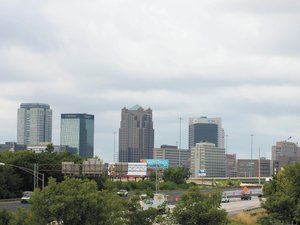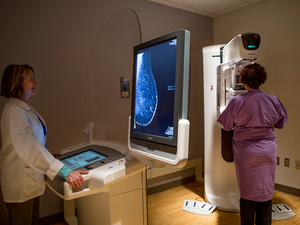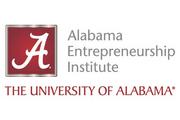
Now that the Birmingham metro is among 31 regions across the country named a federal Tech Hub, it is competing to potentially get $75 million injected into the local economy.
Birmingham’s consortium of partners now advances to a second round of selections. Five to 10 Hubs will ultimately be chosen by the U.S. Economic Development Administration to receive a significant investment aiming to bolster innovation and create jobs.
"This is the equivalent of making the playoffs," said Josh Carpenter, CEO of Southern Research, which led the effort to nap the designation. "We've got a few more games to win before we win the championship."
Here's how Birmingham stacks up against the competition.
Birmingham's competitive edge
According to Carpenter, the city just needs to be the best version of itself.
"We're not trying to be any other city. (UAB Hospital) is already one of the largest hospitals in the country," he said, adding that Southern Research conducts $750 million in biomedical research, with more than $300 million from the National Institutes of Health.
Carpenter said Birmingham Mayor Randall Woodfin has a vision to build an inclusive economy that focuses on everything from public safety to social and family support.
"You have solid research, which for 82 years has been a stalwart in developing drugs and creating medicine for the future," he said. "We think that combination of assets is really unique, and we also believe we have the right team, but more importantly, we have the right alignment among leadership to execute on."
The competition
The areas that have been designated as Federal Tech Hubs are broken down into categories.
Birmingham's category is "Advancing Biotechnology Precision and Prediction."
According to a fact sheet from the White House, the Birmingham Biotechnology Hub, led by Southern Research Institute, aims to become a global leader in drug, vaccine and diagnostics development by applying artificial intelligence-driven biotechnology to increase representation in clinical genomic data and clinical trials.
Others in the category include:
- Wisconsin Biohealth Tech Hub (WI), led by BioForward Wisconsin, aims to position Wisconsin as a global leader in personalized medicine, an emerging health care approach that tailors tests, treatments and therapies informed by a patient’s unique genetic code, medical record and environment.
- Baltimore Tech Hub (MD), led by the Greater Baltimore Committee, aims to develop innovative predictive health care technologies by applying artificial intelligence to biotechnologies.
- Greater Philadelphia Region Precision Medicine Tech Hub (PA, DE, MD, NJ), led by the Ben Franklin Technology Partners of Southeastern PA, aims to become a global leader in end-to-end precision medicine.
- Minnesota MedTech Hub 3.0 (MMT3.0) (MN, WI), led by the Minneapolis Saint Paul Economic Development Partnership, aims to position Minnesota as a global center for “Smart MedTech” by integrating artificial intelligence, machine learning and data science into medical technology.
The "Enabling Safe and Effective Autonomous Systems" category includes:
- Tulsa Hub for Equitable & Trustworthy Autonomy (OK), led by Tulsa Innovation Labs, aims to become a global leader in developing and commercializing autonomous systems for use cases ranging from agriculture and pipeline inspections to regional transportation.
- Ocean Tech Hub in (RI, MA), led by the Rhode Island Commerce Corp., aims to develop, test and commercialize emerging maritime artificial intelligence and machine learning-enabled robotics and sensors.
- Headwaters Hub (MT), led by Accelerate Montana, aims to become a global leader in smart technologies for automating complex processes, such as industrial manufacturing.
The "Maintaining Our Quantum Edge" category includes:
- Elevate Quantum Colorado (CO), led by Elevate Quantum, aims to solidify the region’s global leadership in quantum information technology to increase infrastructure resilience and strengthen the quantum hardware supply chain.
- The Bloch Tech Hub (IL, IN, WI), led by the Chicago Quantum Exchange, aims to lead quantum computing, communications and related solutions.
The "Advancing Biotechnology in Drugs and Medical Devices" category includes:
- Advanced Pharmaceutical Manufacturing Tech Hub (VA), led by the Commonwealth Center for Advanced Manufacturing, aims to accelerate the growth, innovation and sustainability of the U.S.-based Advanced Pharmaceutical Manufacturing industry to re-shore safe and affordable medicines via innovative hybrid and continuous flow manufacturing technologies.
- ReGen Valley Tech Hub (NH), led by the Advanced Regenerative Manufacturing Institute, aims to make New Hampshire a global leader in biofabrication to produce cost-effective regenerative therapies that address chronic disease and organ failure.
- iFAB Tech Hub (IL), led by the University of Illinois Urbana-Champaign, aims to scale precision fermentation to convert underutilized corn feedstocks into high-value, customized alternative proteins, food ingredients, materials, chemicals and more.
- Kansas City Inclusive Biologics and Biomanufacturing Tech Hub (MO, KS), led by BioNexus KC, aims to position eastern Kansas and western Missouri as a global leader in biologics and biomanufacturing, increasing domestic production of life-saving vaccines and other preventative technologies.
- Heartland BioWorks (IN), led by the Applied Research Institute, aims to develop central Indiana into a global leader in biotechnology and biomanufacturing by increasing the region’s capacity to make and deploy life-saving medicines.
- PRBio Tech Hub (PR), led by the Puerto Rico Science, Technology and Research Trust, aims to advance the region as a global leader in biotechnology through fast-tracking the discovery, development, manufacturing and supply of next generation biotechnology and medical device products to detect, treat and cure diseases and ailments.
The "Accelerating America’s Clean Energy Transition" category includes:
- Gulf Louisiana Offshore Wind Propeller (LA), led by Louisiana State University, aims to transition Louisiana’s energy economy from its legacy of oil and gas to offshore wind and renewable energy.
- Intermountain-West Nuclear Energy Tech Hub (ID, WY), led by the Idaho Advanced Energy Consortium, aims to position Idaho and Wyoming as a global leader in small modular reactors (SMR) and advanced nuclear energy to contribute to a clean energy future.
- SC Nexus for Advanced Resilient Energy (SC, GA) led by the South Carolina Department of Commerce, aims to be a global leader in advanced energy by developing, testing and deploying exportable electricity technologies.
- South Florida Climate Resilience Tech Hub (FL), led by the Miami Dade County Innovation and Economic Development Office, aims to advance its global leadership in Sustainable and Resilient Infrastructure solutions for the global climate crisis.
- New Energy New York (NENY) Battery Tech Hub (NY), led by the State University of New York Binghamton, aims to bolster battery technology development and manufacturing across the entire value chain.
The "Strengthening Our Critical Minerals Supply Chain" category includes:
- Nevada Lithium Batteries and Other EV Material Loop (NV), led by the University of Nevada, Reno, aims to build a self-sustaining and globally competitive full lithium lifecycle cluster, spanning extraction, processing, manufacturing and recycling.
- Critical Minerals and Materials for Advanced Energy (CM2AE) Tech Hub (MO), led by the University of Missouri System, aims to position south-central Missouri as a global leader in critical minerals processing to provide the materials needed to support battery technology.
The "Regaining Leadership in Semiconductor Manufacturing" category includes:
- Texoma Semiconductor Tech Hub (TX, OK), led by Southern Methodist University, aims to unify existing and planned semiconductor supply chain infrastructure by enhancing regional collaboration and uplifting underserved communities through workforce expansion.
- Corvallis Microfluidics Tech Hub (OR), led by Oregon State University, aims to establish global leadership in the development, scaling and commercialization of microfluidics technology for use in semiconductor and electronic cooling.
- NY SMART I-Corridor Tech Hub (NY), led by CenterState Corporation for Economic Opportunity, aims to enhance regional semiconductor manufacturing capabilities while ensuring economic opportunity for underserved communities.
- Advancing Gallium Nitride Tech Hub (VT), led by the University of Vermont, aims to innovate in GaN manufacturing, a critical materials technology for wireless communication.
The "Growing the Future of Materials Manufacturing" category includes:
- Sustainable Polymers Tech Hub (OH), led by the Greater Akron Chamber, aims to tackle the severe climate and environmental impacts resulting from the use of fossil fuel-derived polymers (rubbers and plastics) through accelerating sustainable polymer manufacturing and commercialization in the United States.
- Forest Bioproducts Advanced Manufacturing Tech Hub (ME), led by the Maine Technology Institute, aims to become a global leader in forest-based biomaterial production and manufacturing by innovating the process of extracting biological building blocks to manufacture environmentally sustainable products.
- American Aerospace Materials Manufacturing Tech Hub (WA, ID), led by Gonzaga University, aims to develop new domestic supply chains to meet the immediate demand for high-rate production of advanced composite aerostructures in defense and commercial markets.
- Pacific Northwest Mass Timber Tech Hub (OR, WA), led by Oregon State University, aims to be a global leader in mass timber design and manufacturing to lower the construction industry’s carbon footprint and improve housing affordability.









